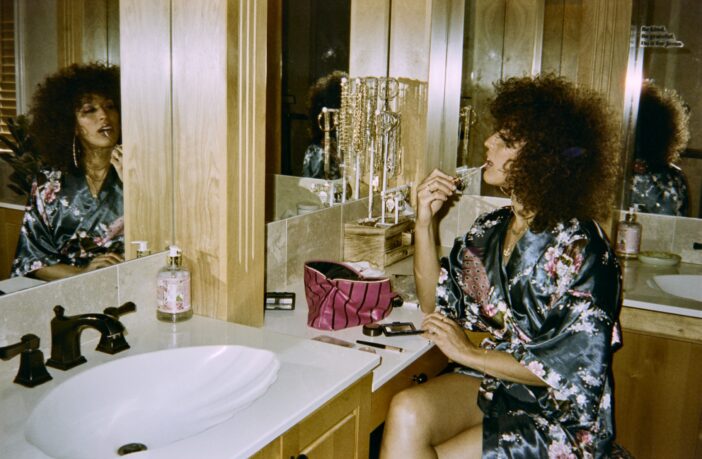For centuries, Black women have been subjected to a narrative that casts us as unwavering pillars of strength—stoic, resilient and always capable of bearing the weight of the world.
This characterization has often been a response to the brutal realities of slavery, segregation and systemic racism. In an attempt to survive the unimaginable, Black women were forced to endure hardship without complaint, to nurture their families despite being denied basic human dignity, and to fight for rights that others took for granted.
But somewhere along the way, this portrayal of strength became not only a survival mechanism but also an expectation—a false idol that has overshadowed the depth and nuance of Black womanhood.
The “strong Black woman” stereotype, while often lauded as a badge of honor, has a dark side. It erases the humanity, complexity and vulnerability of Black women, pushing us to perform an impossible standard. It demands that we endure pain silently, carry burdens alone, and never show weakness—reinforcing the idea that to be Black and female is to be impervious to suffering.
This narrative is not only unfair; it’s dangerous.
The burden of being strong
The history of Black women has often been defined by a relentless demand for resilience. From being forced to care for families under the cruelty of slavery to being tasked with maintaining the strength of entire communities while battling racial and gender discrimination, Black women have been expected to soldier on without pause. This expectation has permeated our personal, professional and social lives.
Studies have shown that the stereotype of the “strong Black woman” can contribute to mental health issues. According to the American Psychological Association (APA), Black women often feel pressured to appear strong and self-sufficient, resulting in higher rates of chronic stress and health disparities, including hypertension and depression. The notion that we must always be unbreakable can also deter us from seeking help when we need it.
The “strong Black woman” stereotype, while often lauded as a badge of honor, has a dark side. Credit: Getty
This image of Black women as emotionally invulnerable has a profound impact on our relationships and our sense of self. It teaches that we must put our needs last, that vulnerability is a weakness, and that to be human is to be inauthentic.
Yet, this narrative ignores the truth: Black women, like all women, possess multifaceted identities that include strength and vulnerability, power and tenderness, resilience and fragility. We are not defined by one trait alone; our humanity is far more complex.
Reclaiming vulnerability
A powerful shift has begun in recent years. Black women are starting to reclaim the space to be both strong and vulnerable. This includes acknowledging our emotions, embracing our fragility, and rejecting the myth that showing vulnerability somehow diminishes our worth or strength. It’s a radical act to exist outside the confines of a stereotype that limits us to a singular, flattened identity.
For example, public figures like Michelle Obama, Beyoncé and Taraji P. Henson have all publicly spoken about the pressure to be “strong” and how they have learned to embrace their vulnerability.
In her book Becoming, Michelle Obama speaks openly about the struggles she faced balancing her career, family life, and personal identity. In doing so, she challenges the myth that Black women must always present as flawless warriors in a world that constantly demands more. Beyoncé’s album Lemonade is another example of a public figure embracing both strength and vulnerability, using her art to explore themes of pain, forgiveness, empowerment, and love. These women show us that we do not need to be one-dimensional to be successful—we can embrace our complexity.
The importance of a nuanced narrative
As we continue to evolve, we must work towards a more nuanced understanding of Black femininity—one that honors both our strength and our vulnerability. Acknowledging the full spectrum of Black womanhood doesn’t diminish our power; it enhances it. Strength and softness are not mutually exclusive; they coexist in a way that is deeply empowering. We are not weak because we cry. We are not fragile because we ask for help. We are not any less powerful for admitting we are struggling.
Embracing vulnerability can lead to healing. A study from the University of Michigan found that emotional expression—especially in supportive environments—can significantly reduce stress and improve overall well-being. When Black women are encouraged to express their vulnerabilities without judgment, we not only create space for healing but also for deeper, more authentic connections with each other and with the world around us.
Moving forward
Reclaiming Black femininity means rejecting the harmful stereotypes that have been thrust upon us and replacing them with a fuller, more honest understanding of who we are. It means acknowledging that we are both warriors and nurturers, survivors and dreamers, strong and soft. It means giving ourselves the grace to exist as we are—whole, complex, and unapologetic.
The next time someone calls a Black woman “strong,” let us remember that strength doesn’t mean invulnerability. It means having the courage to face adversity, to rise despite setbacks, and to honor the full spectrum of our humanity, including the parts that are soft, fragile, and needing care. In embracing this duality, we allow ourselves and others to experience the true power of Black womanhood—one that is rich in strength, vulnerability, and everything in between.



